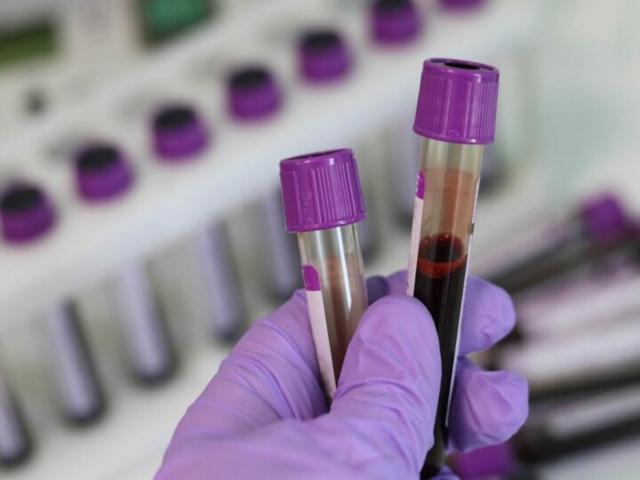In a remarkable stride within the domain of health sciences, Israel has positioned itself at the forefront of Alzheimer's disease diagnosis with the introduction of an innovative blood test. This development heralds a significant milestone in the ongoing fight against this widely prevalent form of dementia. Crafted through international collaboration, this test emerges as a beacon of hope, presenting a non-invasive and efficient avenue for early detection of Alzheimer’s disease. Such early detection is crucial, as it opens pathways to interventions that have the potential to slow down the advancement of this debilitating condition.
At the heart of this advancement is Neurology Professor David Tanne, a distinguished figure in the field and the president of the Israel Neurological Association. Additionally, as the director of the Stroke and Cognition Institute at the Rambam Health Care Campus in Haifa, Professor Tanne has lauded the introduction of this test as the advent of a revolution in Alzheimer’s diagnosis and care. “A biomarker-based diagnosis of Alzheimer’s at an early stage is the beginning of a revolution in the field,” Prof. Tanne remarked, highlighting the transformative potential this development bears for the future of Alzheimer's care and research.
Last week Prof. David Tanne lectured at @Meteg, hosted by @EMDA, on Innovations in Brain Disease Diagnosis, including Delphi-MD. Prof. Tanne, President of the Israel Neurological Association, is a leading figure in neurology and stroke research. https://t.co/12WOBP0wgE pic.twitter.com/CnNx8rMKaQ
— QuantalX (@QuantalX) February 14, 2024
The revolutionary aspect of this diagnostic tool lies in its capacity to identify amyloid beta, a harmful compound that disrupts communication between nerve cells, ultimately leading to the deterioration of brain tissue. Named AD-Detect, the test functions as a liquid biopsy, allowing for an insight into the disease’s biomarkers without the need for patients to undergo invasive procedures. While not directly available to consumers, it requires a physician's prescription, with a cost of $399 plus a $13 physician service fee when accessed abroad.
In Israel, the implementation of this cutting-edge testing method has been entrusted to Medical Link, a representative of Quest Diagnostics, the American company behind the development and marketing of the blood test. Prof. Tanne, as a paid consultant for Medical Link, ensures the test's integrity and efficacy. Quest Diagnostics is pivotal in this endeavor, as it undertakes the analysis of blood samples sent from Israel to their laboratory in California, a facility noted for its capacity to conduct half a million varied tests daily.
לראשונה בישראל: זו הבדיקה שתביא לאבחון מוקדם של אלצהיימרhttps://t.co/zWAXV47RWB pic.twitter.com/LSrH9993tp
— Dotan Gabay - דותן גבאי (@mdg1306) March 31, 2024
Targeted at individuals of all ages, pending a physician's referral as part of a thorough medical evaluation for cognitive health, the amyloid test in Israel is priced at NIS 3,450. Additional tests for tau-protein and a comprehensive set of three tests escalate to NIS 5,850. Despite the higher cost in Israel compared to international prices, the test's reliability, validated through clinical studies with an 89% accuracy rate in detecting Alzheimer’s biomarkers, is affirmed.
This diagnostic breakthrough is further bolstered by the availability of additional tests for p-tau 181 and the APOE gene, thereby deepening the assessment and understanding of the disease. Traditionally, Alzheimer’s diagnosis has been heavily reliant on reviews of medical history and cognitive assessments, with previous biomarker tests being either invasive, limited in access, or prohibitively expensive for the healthcare system.
Israel's adoption of this novel diagnostic approach is driven by an urgent need, as highlighted by EMDA (Alzheimer’s Association of Israel), which estimates that approximately 150,000 Israelis currently suffer from Alzheimer's and other dementias—a number expected to triple by 2050, according to the Health Ministry.
New blood test detecting Alzheimer's available in Israel - The Jerusalem Post https://t.co/afL1nHReWr
— Carlos Abadi (@NewSamawal) March 31, 2024
Accompanying this diagnostic innovation, the introduction of new treatments, including the first US FDA-approved drug for Alzheimer’s effective in early-stage treatment, and ongoing research linking healthy lifestyle choices to delayed symptom onset, signals a new era of hope and proactive measures against Alzheimer's. Moreover, a study published in the New England Journal of Medicine, titled “Biomarker changes during 20 years preceding Alzheimer’s Disease,” sheds light on the prolonged preclinical phase of Alzheimer's. This offers invaluable insights into early detection and preventative strategies, further emphasizing the paramount importance of early diagnosis and intervention in altering the disease’s trajectory.


